














by Chasidy Rae Sisk

PRESIDENT’S MESSAGE by Burl Richards Taking the Table to Techs
6
10 14 20
EXECUTIVE DIRECTOR’S MESSAGE by Jill Tuggle Missing: Commissioner’s Bulletin B-0028-00
LADIES OF COLLISION by Alana Quartuccio Kayla Curran Hughs, Car-O-Liner Southwest
GUEST FEATURE by Andrew Plischke
The Collision Repair Industry: How Decades of Insurer Influence Shaped Our Reality
ASK THE EXPERT by Robert L. McDorman Greater Awareness Needed for Policyholder Rights via Right to Appraisal
Official publication of the Auto Body Association of Texas
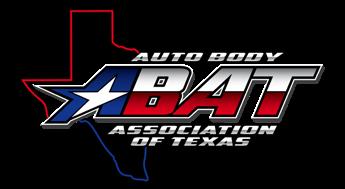
President Burl Richards White Sands Collision Center burl.richards@proton.me (903) 392-0047 Vice President Eric McKenzie Park Place Dealerships emckenzie@parkplace.com
Larry Cernosek Deer Park Paint & Body lcwrecker@comcast.net (281) 930-1539
Chevy Corn Corn’s Collision chevy@cornscollisioncenter.com (979) 279-3310
Kevin Ellison Westway Ford kellison@vtaig.com (972) 584-9033
Brandon Gillespy Park Place BodyWerks bgillespy@parkplace.com 214-443-8250
Chad Kiffe Berli's Body & Fine Finishes chadk@berlisbody.com (512) 251-6136
Greg Luther Helfman Collision gluther@helfman.com (713) 574-5060
Chad Neal Innovative Collision Equipment Chadwneal@yahoo.com (817) 527-2143
coreyp@swcollision.com (936) 634-8361
Manuel Rubio Miracle Body & Paint manuelr@miraclebp.com (210) 843-9564 Albert Salinas South Houston Nissan asalinas@southhoustonnissan.com 833-856-7871
Published by: Thomas Greco Publishing, Inc. 244 Chestnut Street, Suite 202, Nutley, NJ 07110
Corporate: (973) 667-6922 / FAX: (973) 235-1963
PRESIDENT/PUBLISHER
Thomas Greco / thomas@grecopublishing.com
VICE PRESIDENT/SALES DIRECTOR Alicia Figurelli / alicia@grecopublishing.com
EDITORIAL DIRECTOR Alana Quartuccio / alana@grecopublishing.com
SR. CONTRIBUTING EDITOR Chasidy Rae Sisk / chasidy@grecopublishing.com
PRODUCTION COORDINATOR Joe Greco / joe@grecopublishing.com
OFFICE MANAGER Donna Greco / donna@grecopublishing.com
SPECIAL CONTRIBUTORS: Burl Richards / Jill Tuggle Robert L. McDorman / Mike Anderson

www.grecopublishing.com




AAnyone involved in this industry knows that technicians are the backbone of what we do in our shops every day, and over the years, ABAT has made efforts to draw more techs into the association through the training we offer and the addition of the BIG SHOTS Competition at the annual Texas Auto Body Trade Show.
Since our techs are the ones performing the repairs, they get firsthand experience with a lot of the issues that shop owners should be aware of – but if they aren’t bringing it to their bosses’ attention, those shops may not be getting reimbursed for the processes and procedures being performed! At the same time, many technicians would love to get some additional training and expand their knowledge of our industry.
Technicians have a lot to offer the association, and ABAT has a lot to offer them, yet the vast majority of the association’s membership consists of shop owners, managers and vendors…and I want to see that change! We want techs to have a voice in our association, but unless they have a seat at the table, that just isn’t possible.
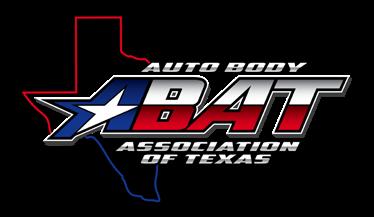

At the same time, we’ve heard from repairers that, though they see value in membership and want to be part of something bigger, they haven’t all been able to convince the owners of the shops where they work to get involved with ABAT. Those repair professionals want to invest in themselves; they want a seat at the table, and now, ABAT is making it easier than ever with the introduction of individual memberships (please visit the following link at grecopublishing.com/txa0125coverstory for more information).
We’re offering a really sweet package – technicians can sign up for next to nothing and gain access to everything the association provides, from the information hub on our website and inclusion on ABAT’s mailing lists to opportunities to attend training events
continued on pg. 23






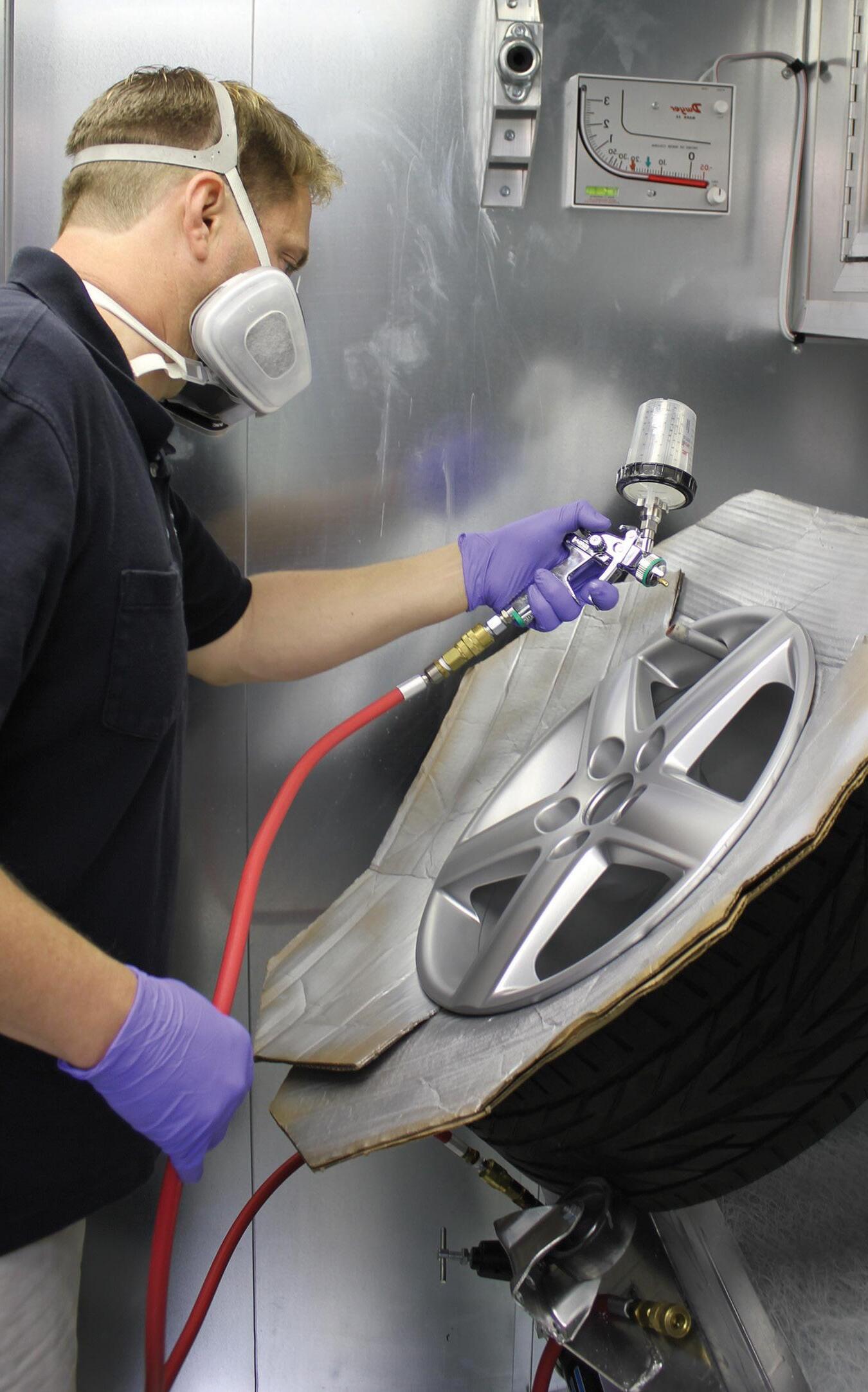



TThe highest goal and priority of an association is to address issues that plague its members, and that is certainly the case for ABAT. Last year, we saw the insurance companies tighten up a lot on proper reimbursement, and the pricing agreement between GEICO and asTech is an issue we are still navigating as more and more agreements like this roll out.
Fun fact about me: I am OBSESSED with true crime. And (sorry to stereotype my people here) like many other females, I pride myself on being a top-tier armchair detective. That’s why a recent issue that came across my desk has had an absolute
GRIP on me. This one is a bona fide mystery.
Recently, I received an email from Yanni Koutmos of Eagle MMS asking me if I could look into something for him. He had a commissioner’s bulletin out of Texas that seems to have been wiped from existence. Written and signed by Commissioner Jose Montemayor on June 9, 2000, bulletin #B-0028-00 essentially states that paint capping is an unfair claims practice, citing article 21.21-2 of the Texas insurance code. It has been used by Texas shops for years to combat paint capping tactics used by insurance companies.



Yanni and I have both spent countless hours in the depths of Wayback Machine (an internet webpage archive) trying to find it with absolutely no luck. My slow communications with the Texas Department of Insurance (TDI) have only led to more questions, and all accounts of that bulletin number turn up an unrelated bulletin. Other ABAT shops either know of or have used this bulletin as well.
You’ve heard of the Mandela Effect, right? If not, let me tell you it’s fascinating. According to Encyclopedia Britannica, the “Mandela Effect is a popularized phenomenon in which a group of people collectively misremember facts, events or other details in a consistent manner.” It is aptly named for its inceptual example: large groups of people falsely remembering the death of Nelson Mandela in the ‘80s or ‘90s. There are so many other examples of this effect that will actually make you question your sanity (go look them up for a bit of confusing amusement). But this bulletin issue can’t be a Mandela Effect because we have a screenshot of it
So, where did it come from? That’s what TDI would like to know. Where did it go? That’s what ABAT and Eagle MMS would like to know.
Maybe you can help. Have you used this bulletin? Have a copy of it somewhere? Know the source? Best friends with former Commissioner Montemayor? Any leads are appreciated. I refuse to let this case go cold.
IF YOU HAVE ANY INFORMATION LEADING TO THE CAPTURE OF THIS BULLETIN, PLEASE REACH OUT TO THE ABAT INVESTIGATIVE TEAM (it’s just me) at jill@abat.us.



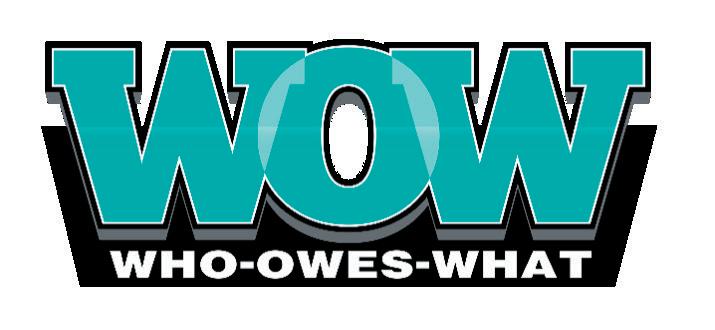


Buying a paint booth is a huge investment, and there are many factors to carefully consider before selecting one Will the booth work well in a region where there’s a ton of humidity and with drastic changes in the weather? How long do you think the booth will last and will it require a lot of maintenance? Will your painters be comfortable using it ever y day and finally, will the company making the booth provide solid training and reliable customer ser vice?
To answer these questions before acquiring two Chronotech spray booths and a prep deck from USI ITALIA back in 2004, Collision Center Manager Kevin McIllveen at Russell & Smith Body Shop in Houston, TX spent six months studying the market He was looking for the best booths that matched his needs to use in a brand-new 36,000 sq ft facility that the company built from the ground up
Mcllveen, age 56, entered the industr y more than three decades ago as an estimator and has worked for Russell & Smith Body Shop since 1993 His goal with his new spray booths was to improve the efficiencies in his paint department and to accommodate his production, he said, while simultaneously saving time and energy if possible
The vetting process was arduous but worth it in the end. "We did our research so that we could make an educated decision," he said "I went to NACE two years in a row and talked to literally ever yone and asked a lot of questions We knew that this was going to be a ver y significant investment, so we took the time to perform our due diligence to cover all our bases We invested in their prep stations as well, which was another good decision, because my guys can work so much faster and effectively with five different places where we can spray We put a curtain up in the prep booth that provides us two additional spaces that are heated and properly ventilated So, when we are really jammed, we can handle the workload and maintain our cycle time without interrupting or slowing down our production "
After using them for a ver y short time, Mcllveen could clearly see that his Chronotechs were more than capable as they quickly became a centerpiece in his new, high-end, modern shop
"We have four paint teams here, consisting of a painter and a painter’s helper and we consistently log approximately 600-700 paint hours weekly,” he said “We switched to waterborne paint when we opened this facility because we want to provide a healthier climate for our employees and the community as a whole ”

we push these booths and they never let us down ”
Any issues that Russell & Smith Body Shop have encountered with their USI ITALIA booths have been rare and far between But Mcllveen feels good knowing that if called upon, the company will respond and find solutions promptly “If you do your scheduled maintenance and keep ever ything clean, these booths will last you 30 years and maybe even longer The issues that we have encountered with the Chronotechs have been minor and quickly solved, which is impressive when you think that we have been using these booths daily for the last 16 years. I tell people that these booths will be here long after I’ve retired!”

Why was Mcllveen able to improve his numbers by simply adding two USI booths? “In the end, it all comes down to their airflow because we never need blowers or additional air to cure these vehicles The fans in these Chronotechs are exceptional because they feature variable speeds, so we can switch depending on the parameters of each job. Our painters are producing an impressive product day after day, so these booths are saving us both time and money We paint an average of 400 cars ever y month, so
After training provided by USI ITALIA, Mcllveen’s painters were able to start spraying after one day, he said "The Chronotechs are designed to work with waterborne paint, which makes it easier for our painters to do their work After a ver y short time, all of our guys were comfortable and the results were consistently exceptional.”
Mcllveen is also impressed by the Chronotech's sturdy construction and durability "Some booths are just a box, but these are wellbuilt," he said “I know, because I've seen them all and there isn't anything like a USI ITALIA booth "
His career in collision repair industr y has been a great experience and products like his USI ITALIA spray booths and prep station are a part of that, he said “We haven’t had to furlough anybody here and that’s because we value our people and, in the end, our Chronotechs are part of the team ”



There really is nothing a woman can’t do. The women who make the collision repair industry shine so bright in the Lone Star State prove that statement true time and time again. This regular feature continues to highlight the many amazing women who make it all so great. This month, we sat down with Car-OLiner Southwest’s very own Kayla Curran Hughs, who has spent the better part of the last 10 years of her career as their sales consultant.
Texas Automotive: What led you to come to work in the collision repair industry?
Kayla Curran Hughs: My father, the distributor for Car-O-Liner Southwest, was looking to create a position to help the company grow. He came to me asking for assistance in creating the position with the idea that I’d get it started and we’d find someone to fill the position; it was intended to be a temporary thing while I worked
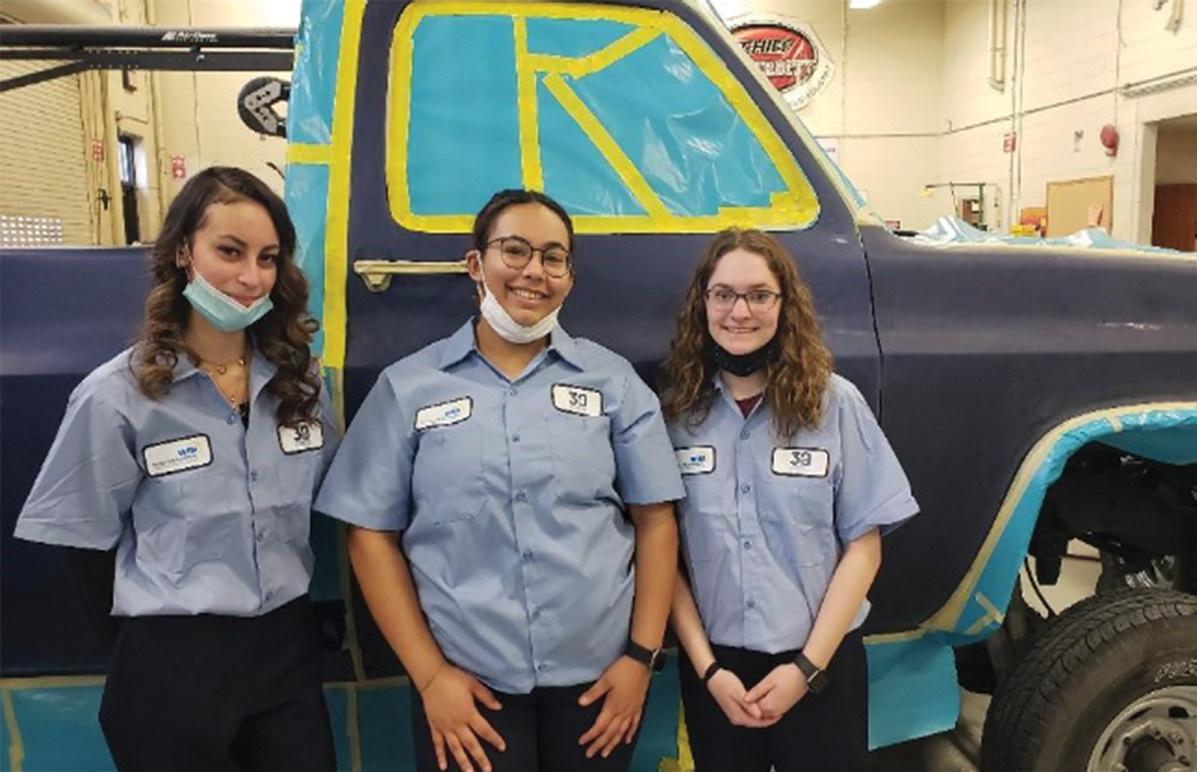
WIN offers education, mentoring and leadership development opportunities to build critical skills for success in the collision repair market.
• Local/Regional Networking Events
• Annual Education Conference
• Educational Webinars
• Mentoring Opportunities
womensindustrynetwork.com
• Scholarship Program
• School Outreach Program
• Most Influential Women (MIW) Award
by Alana Quartuccio
toward my own career.
TXA: So, you didn’t initially envision a career in this field?
KH: No, I wanted to focus on horse breeding. I went to school to study animal science and had plans to work at a farm, but as it turns out, I stayed with Car-O-Liner. I started in sales a year and a half later, and that's what I've been doing ever since. I really like working with body shops. It was a bit intimidating at first, but I gave it a chance and pushed through it. The more I began to build relationships with people, the more fun it became. I enjoy being out on the road, meeting different people in the shops who come from all different walks of life.
TXA: What do you love most about the industry?
KH: The people. I hope that doesn’t sound cliche, but I really like the people and enjoy the relationships I build. I encounter many people who have been supportive, encouraging and friendly.
TXA: Tell us a little about your position and what your day-today looks like.
KH: I’m a sales consultant. I travel to shops to either do sales calls, courtesy check-ins, or to perform a quick service call. If the shop is interested in equipment, I like to consult with them and learn more about what their needs are and what their shop culture is like.
TXA: What would you say are some of the biggest challenges women face in this industry?
KH: For me personally, I don't know that I've really encountered that many challenges. In the beginning,when nobody knew me, it took time and effort to earn trust and respect.
TXA: What's life like outside the body shop? Do you have any hobbies that you want to share?
KH: I love to play volleyball. I have three young children, so between volleyball and babysitting, that’s kind of my life. My husband and I play volleyball, and we camp. We also have a farm where we raise turkeys, guineas and chickens.
TXA: What encouraging words would you give to another woman looking to get into the industry?
KH: It doesn’t matter what role you’re in, just stay dedicated to what you want and to your end goal. Push through any challenges that come your way. This industry can be intimidating as a ‘man’s world,’ and even those who have background, education and experience may still encounter challenges. There are not a lot of women in this industry, but there are many resources and encouraging people who will support and help you down your path. TXA
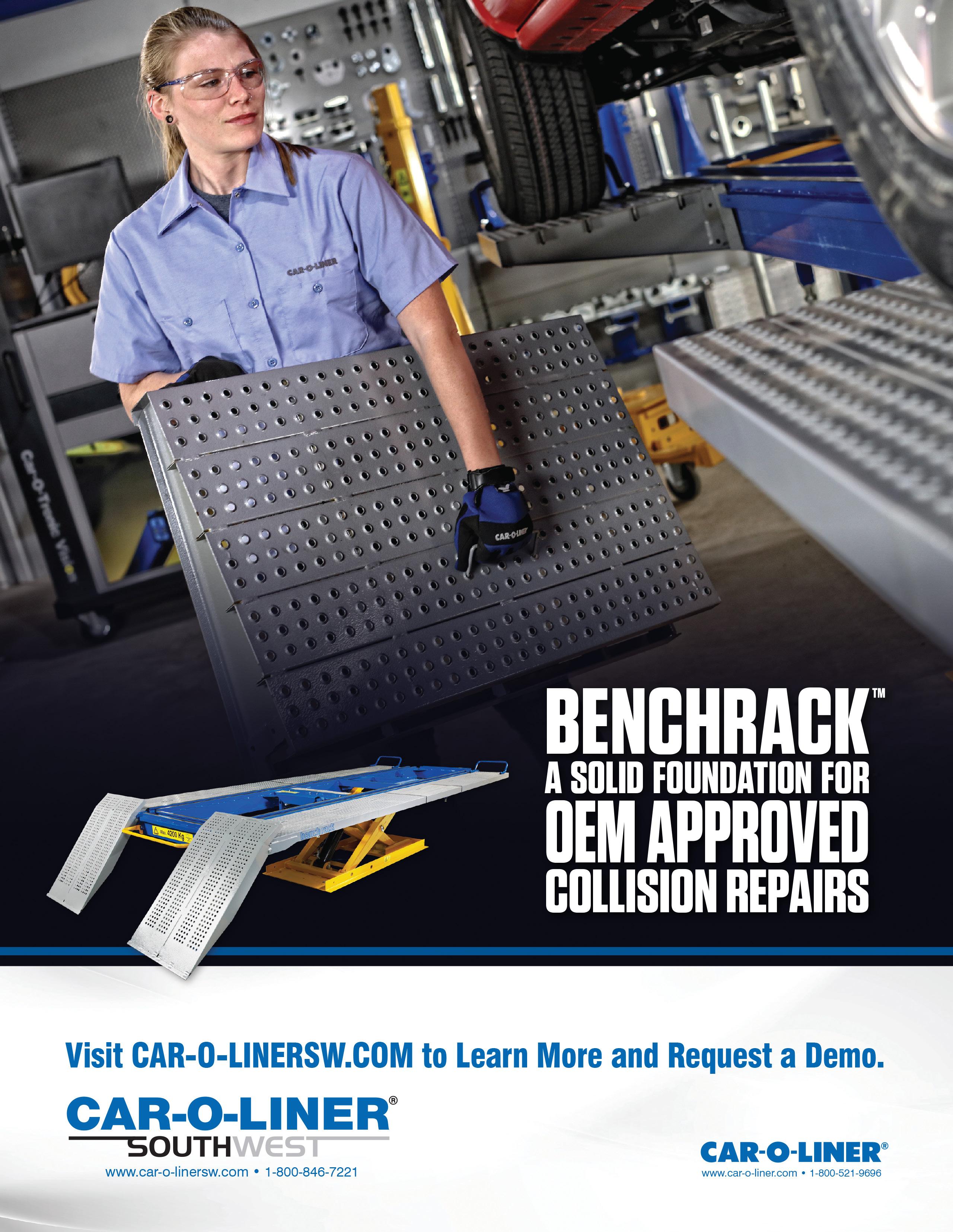



www.raeservice.com (800) 328-7855
For over 30 year’s Reliable Automotive Equipment has been the premier OEM Collision Repair equipment supplier. Please continue reading for details on our range of OEM certified riveting sets, tailored for diverse automotive needs. Discover the ideal choice for your workshop today!


Modular Riveting System to place self-piercing rivets (SPR) on flanges and to remove SPR’s.
INCLUDES: Xpress 800 Power Pack, Cylinder SSC35/25, C-arm GC 80/40, Tool Box RS-03, Transport case & Manual
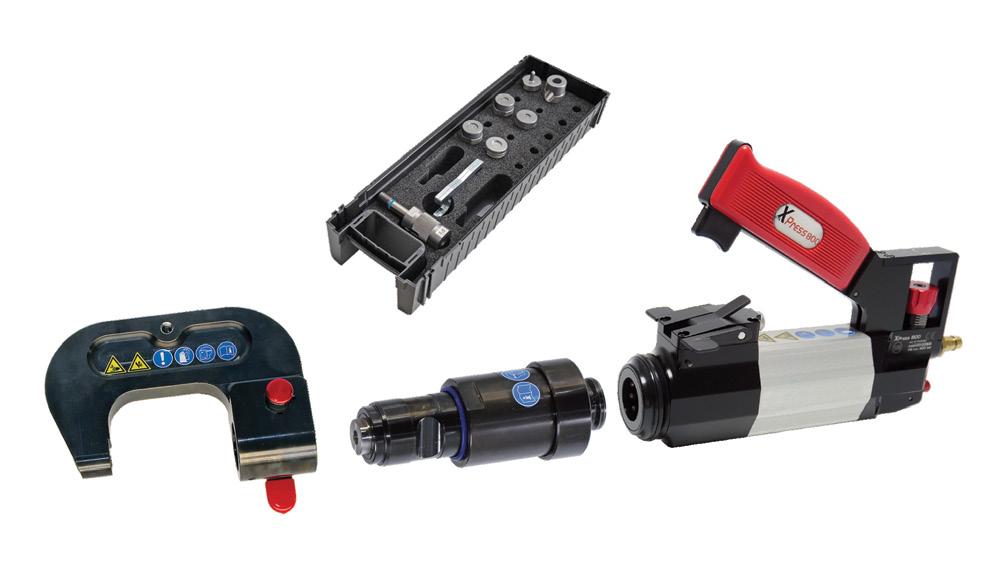
Self-Piercing Rivets, Flow Form Rivets, and Solid Rivets.

INCLUDES: Xpress 800 Power Pack, Cylinder SSC35/25, C-arm GC 80/40, C-arm GC 80/120, C-arm GC 140/240, Tool Box RS-03, Transport case & Manual


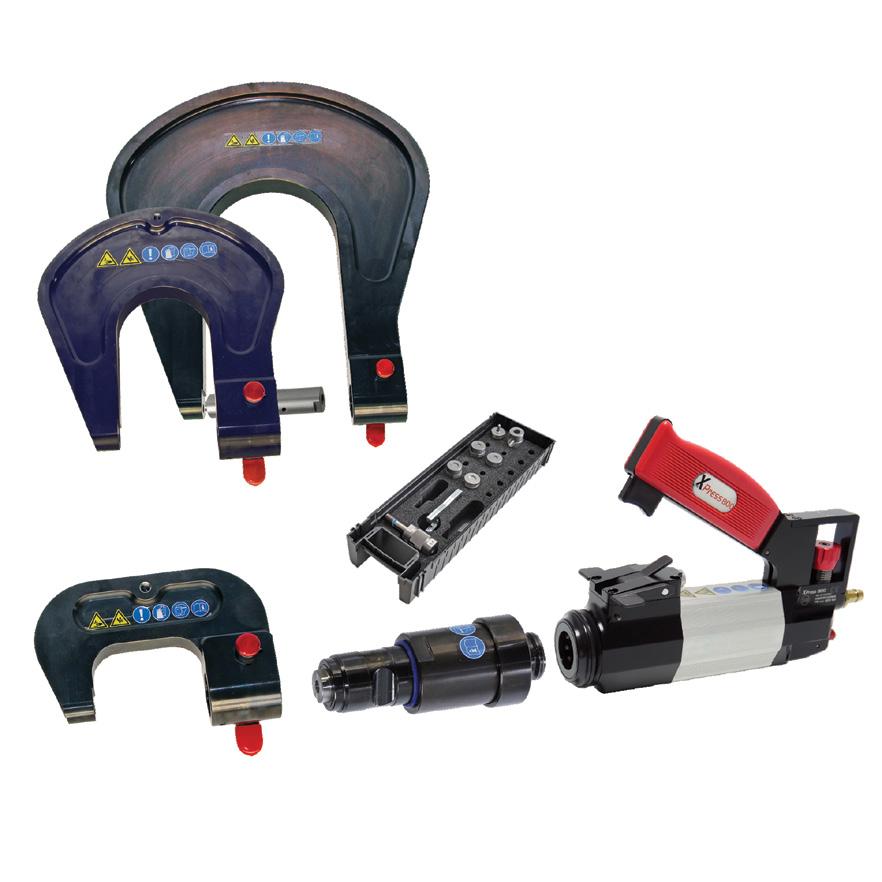

Self-Piercing Rivets, Flow Form Rivets, Solid Rivets, Blind Rivets, Blind Rivet Nuts, and Rivbolt Threaded Studs.
INCLUDES: Xpress 800 Power Pack, Cylinder SSC35/25, C-arm GC 80/40, C-arm GC 80/120, C-arm GC 140/240, Tool Box RS-03, Tool Box RS-04, BR 20, BR50, BRN 50, Transport case & Manual


Mechanically driven Hydraulic actuator to place and remove self-piercing rivets.
INCLUDES: XPac (including torque support), C-arm GC 80/40, Tool Box RS-03, Red Handle & Manual
FIND YOUR PERFECT SET.


by Andrew Plischke
Few pieces of legislation have had as profound an impact on the collision repair industry as the McCarran-Ferguson Act of 1945. This nearly 80-year-old law, combined with subsequent strategies like the "The Plan" of 1947 and the 1963 Consent Decree, established a framework that has allowed insurers to dominate the auto repair landscape. For those in the independent collision repair industry, understanding this history is essential to confronting the challenges of today.
The McCarran-Ferguson Act: A Pivotal Turning Point
Passed in response to the 1944 Supreme Court decision in United States v. South-Eastern Underwriters Association, the McCarran-Ferguson Act returned regulatory authority over insurance to the states and granted insurers immunity from federal antitrust laws, provided state regulations were in place.
This exemption set the stage for insurers to centralize power and coordinate practices with limited federal oversight. It created an environment where insurers could systematically shape the industry’s operations, often prioritizing cost efficiency at the expense of repairer autonomy and consumer protection. This historical pivot underscores the collision repair industry’s struggle to maintain independence against a backdrop of insurer consolidation.
"The Plan" of 1947: Operationalizing Influence
Just two years after McCarran-Ferguson, insurers devised "The Plan," an initiative designed to align repair standards, control labor rates and streamline costs.
This wasn’t just a roadmap – it was a strategic play to lock in insurer dominance. Through standardized processes and repair mandates, "The Plan" planted the seeds for today’s direct repair programs (DRPs), embedding insurer-driven protocols into every corner of the repair industry. For independent repairers, this marked the start of a systematic suppression of labor rates and a weakening of their ability to dictate repair practices. Insurers gained a powerful lever to control costs, while repairers faced shrinking margins and reduced autonomy.
The federal government’s investigation into collusion among insurers culminated in the 1963 Consent Decree, which sought to curb insurers’ influence by prohibiting price fixing and certain mandated repair processes. On paper, this should have rebalanced the scales. In reality, enforcement was weak.
Insurers adapted swiftly, finding indirect ways to maintain control over repair processes. By leveraging their relationships with DRP shops and creating financial incentives, they effectively sidestepped the decree’s intentions. For independent repairers, the decree’s failure to dismantle entrenched practices meant a continued erosion of independence and influence, further entrenching insurer dominance.
Today, the collision repair industry faces unprecedented challenges that threaten its very fabric.
• Fragmentation vs. Consolidation: While independent shops remain fragmented and struggle to unify, multi-shop operators (MSOs) and private equity-backed networks have surged in prominence. Yet, instead of counterbalancing insurer dominance, many MSOs align their goals with insurers’ cost-saving imperatives. This alignment often exacerbates the pressures faced by truly independent repairers.
• Consumer Disempowerment: Vehicle owners – the ultimate stakeholders – are often unaware of their rights. Insurers steer consumers toward preferred shops, emphasizing cost efficiency over safety and quality. This leaves drivers at risk of subpar repairs and compromises their long-term safety.
For independent collision repairers, the path forward is clear but not easy. It requires a multifaceted approach that combines advocacy, education and solidarity.
1. Legislative Reform:
• Advocate for revisiting McCarran-Ferguson’s antitrust exemptions to restore fairness.
• Push for federal oversight that ensures repairers and consumers are not at the mercy of unchecked insurer practices.
2. Consumer Awareness:
• Educate vehicle owners about their rights to choose repair shops and demand high-quality, safe repairs.
• Emphasize the risks of insurer-driven practices that prioritize cost over safety.
3. Industry Solidarity:
• Support fair labor rates and resist pressures to compromise on quality or safety standards.
• Forge alliances within the industry to amplify the independent repairer’s voice and demand change.
This isn’t just about business – it’s about safety, fairness and the integrity of our craft. Insurers have spent decades leveraging the regulatory framework established by McCarran-Ferguson, "The Plan" and their ability to sidestep the 1963 Consent Decree. For independent repairers, the choice is clear: stand united, educate the public and demand reform. This fight is not just for our shops but for the driving public and the future of collision repair. Together, we can ensure quality, safety and fairness become the industry’s cornerstones once again. TXA
The AluRepair VISAR is a globally unique, high-performance 3-in-1 system with OEM approvals from leading brands like Porsche and Audi, to name a few. It enables repairers to deliver faster, cleaner, and more efficient repair solutions than ever before. Designed specifically to address the unique challenges of aluminum repair, the AluRepair VISAR system can be used to weld aluminum bits as well as threaded, ground and device carrier studs up to 12mm. The system can also set special pullout studs for rapid removal of self-pierce rivets in conjunction with XPress 800 BR50 Pulling Adapters.
Repairers working on multi-material design (MMD) vehicles will note increased efficiency. Aluminum repairs demand exacting standards due to metals’ sensitivity to heat and structural integrity. The VISAR system utilizes advanced calibration and measurement tools to ensure every repair meets manufacturer specifications,
reducing instances of compromised safety or performance.
The AluRepair VISAR system is also designed with sustainability in mind. By minimizing material waste and energy consumption, the AluRepair VISAR system supports environmentally responsible practices, aligning with the growing demand for green solutions in the auto repair industry.
The AluRepair VISAR system uses innovative techniques, including highstrength bonding and welding, to deliver repairs that are both visually seamless and structurally robust. This ensures customer satisfaction and further enhances your facility’s reputation for excellence throughout the entire repair process. Its reliability, accuracy and efficiency make it a sound investment and essential tool for
To learn more about the AluRepair VISAR System or to view Reliable Automotive Equipment’s full offering of products, services and support, visit raeservice.com





Your car is mangled, and your body aches…You just got into a minor car accident, but the initial damage may not be the most painful part of this experience!
For many vehicle owners who’ve been in an accident, the real agony occurs at the hands of their insurance carriers – the entity contracted to indemnify them for their loss – due to tactics designed to increase insurer profits at the expense of their
policyholders. Whether the vehicle is repairable or deemed a total loss, there’s an incredibly high likelihood of receiving a settlement offer that does not truly cover the cost of repairs or the vehicle’s value, leaving a large number of claimants dissatisfied.
In fact, according to the “2024 US Auto Insurance Trends Report” released by LexisNexis Risk Solutions (available at bit.ly/LNRisk24), 46 percent of consumers with total losses
by Chasidy Rae Sisk
were dissatisfied with the overall experience, and it would appear that the prevalence of under-indemnification schemes is becoming more recognized as 85 percent of the claimants in a study conducted by LexisNexis reported being approached by at least one attorney following their accident; of those who hired an attorney, “51 percent of claimants who hired an attorney received a higher settlement amount, and 93 percent who sought legal involvement would ‘definitely’ or ‘probably’ retain counsel for their next claim.”
But litigation is expensive and time-consuming – there’s a better way! The majority of auto insurance policies contain the Right to Appraisal (RTA), ensuring policyholders receive what is due to them without the headache of hiring an attorney and pursuing the matter in court.
“The Appraisal Clause is a policy protection that enables the consumer to address shortcomings in indemnification,” explains Society of Collision Repair Specialists (SCRS) Executive Director Aaron Schulenburg. “The Appraisal Clause allows policyholders to have a third-party appraisal done when they don’t agree with their carrier’s valuation of their vehicle value or the value of the vehicle damages. Both the carrier and the policyholder hire an independent appraiser and if the appraisers can’t agree, an umpire is selected to make the final, binding decision.”
“RTA is critical,” insists Mike Anderson (Collision Advice). “When there’s a disagreement about the difference between what a shop thinks is fair and what the insurance company is willing to pay, it’s the only path a consumer has to resolve the situation without getting a lawyer involved.”
Mark Olson (VECO Experts) describes RTA as “a low-cost, easy way to settle a value dispute. Without the Appraisal Clause, the only recourse a consumer has against their insurance company is to lawyer up, but it’s significantly less costly to hire an appraiser and possibly an umpire to value the vehicle and likely achieve a much better outcome. Insurers are experts at what they do, which includes being profitable. RTA provides consumers with an affordable way to combat that profit-driven approach to make sure they’re not being shortchanged.”
According to Schulenburg, the Appraisal Clause is “the most viable, non-litigious option that gives consumers the ability to address discrepancies with their insurance company without the burden of suing their insurer and bogging down the court system. It’s also worth noting that in most cases, consumers have difficulty finding adequate representation to pursue litigation against their insurance companies, as there is not a meaningful business case for plaintiffs’ attorneys to represent consumers for shortchanged amounts on a case-by-case basis. This is why RTA is so critical.
“It is also important because insurance department complaints are limited in what can be addressed for consumers,” he adds. “Typically, DOI complaint processes establish a need to address patterns of practice and overarching behavior, not the amount of loss or specific items that have been neglected. Appraisal options remedy that, providing the ability to address and resolve specific operations and amount of the loss.”
Unfortunately, the average American driver gets into just
three to four car accidents in their lifetime, so few are aware of this policy provision. This gives collision repair facilities an opportunity to don a hero’s cape by educating their customers about their rights, plus it ensures shops are able to collect what they’re owed for performing safe and proper repairs.
“There is an incredible amount of complexity and sophistication in performing safe, proper repairs to restore the increasing array of sophisticated technology found in modern vehicles,” Schulenburg points out. “Those challenges are made even more difficult when those responsible for indemnifying the consumer pressure repair businesses to deviate or disregard the necessary steps for repair, as documented by the vehicle manufacturer, yet this happens routinely, as we hear often from our membership across the country; businesses that thoroughly document the necessary repair steps receive incomplete claims estimates that don’t align with the repair plan or flat out refusal to recognize procedures, processes, tools or expectations. They are asked to perform repairs in a manner that conflicts with their professional expertise and commitment to the vehicle owner.”
Although many repairers think of the Appraisal Clause as only being relevant in total loss settlements, it can be equally important on repairable vehicle claims. “If a shop wants to fix a car properly, but the insurer doesn’t want to pay for all the processes and procedures necessary to do so, RTA offers a path to resolving that disagreement,” Anderson notes, acknowledging, “At times, the carrier may be correct, so this can also protect the insurer by gaining insight from an unbiased third party; however, in other instances, the insurer may refuse to pay for certain operations that need to be performed, and the appraisal process ensures the shop can perform a safe and proper repair without charging the consumer out of pocket. But it’s not about the shop getting paid – it’s about protecting the policyholder from unfair charges due to their carrier under-indemnifying them.”
“In reality, the customer always owes the money, although an insurer is often involved as a third-party payer,” Olson observes. “If a shop wants to get paid for things that insurance company refuses to pay for, the only choice is to collect the money from the consumer, so if invoking RTA helps the customer obtain the funds to fix their car, the repair facility is more likely to get paid without damaging their relationship with a customer.
“After all, the body shop is perceived as the expert,” he adds, expressing the belief that the Appraisal Clause is vastly underutilized in the collision repair world. “If a customer complains that they aren’t receiving enough from their insurer to pay for the repair, it’s an opportunity to suggest checking their policy to see if RTA is a possible remedy. If it was your car, you’d want to know all of your options. And if invoking the Appraisal Clause results in a higher settlement, you’ve now become a hero for that consumer, so who are they going to call if they’re in another wreck? Who are they going to recommend to friends and family? The person who helped them solve this huge problem, of course!”
In fact, RTA holds the potential to have such a positive
continued on pg. 18
continued from pg. 17
impact on consumers and repairers that these three experts agree that ALL auto insurance policies should include the Appraisal Clause. “It is a responsibility of every state’s Department of Insurance to ensure that carriers aren’t writing them out of the policy,” Schulenburg indicates, a valuable insight since, in recent years, insurance carriers are doing exactly that.
Anderson compares the appraisal process to the judicial system. “Without it, we’d be in the wild wild west; it ensures a due process for resolving a claim. Although some carriers treat their policyholders fairly by paying a reasonable price to fix a car, this varies by region and individual, which can create issues. The Appraisal Clause utilizes appraisers and umpires to ensure consumers are being represented and receiving the treatment they deserve in these stressful situations. When insurers remove it, it leaves consumers without any option to be treated fairly.”
As a licensed public adjuster, Olson offers a historic view of RTA, explaining that it was little known in the early 2000s and started to gain steam around 2018, growing exponentially since the pandemic. “I went from doing about 12 per year to doing over 200 last year,” he shares. “But insurance companies aren’t stupid, so when they see this being utilized more often – and cutting into their profits – they start examining ways to prevent that and protect their bottom line. Some have started removing it from their policies. If something causes a problem or costs them money, they’re always going to figure out a way to prevent it from costing them money.”
Sometimes, that involves being a little crafty. “Some insurers are using ‘wiggle words’ to get around removing RTA from their policies.” Olson cautions. “They often change little words that have a major impact, like turning ‘will’ into ‘may’ or converting ‘and’ into ‘or.’ Some policies indicate that the results are ‘not binding,’ making RTA essentially useless.” He provides an example whereby one insurer has revised their standard policy language regarding the right to invoke the Appraisal Clause by adding “and if we agree,” granting them the ability to decline a policyholder’s attempt to invoke RTA.
Olson offers another insight into evasion tactics insurers use to prevent consumers from effectively using this policy protection: “One company has added a caveat that invocation of the Appraisal Clause has to occur within 60 days of proof of loss; however, many people don’t know the difference between proof of loss and the first notice of loss (FNOL), so adjusters will reject RTA requests based on FNOL, but proof of loss is a different thing entirely – it’s a signed and notarized document that includes the final invoice after the repair is completed. Insurers are very smart at what they do, so we have to be even smarter and more conscientious of their tactics to prevent them from getting away with bad faith.”
For several years, ABAT has been fighting to mandate that the Appraisal Clause be included in all Texas auto insurance policies, but they’re not the only ones! Attempts to thwart insurers’ efforts to remove this important policy protection are popping up all over the country.
“Texas is not alone in the need for mandatory RTA,” Schulenburg stresses. “States are paying close attention to this issue and attempting to address it in a variety of ways. For instance, Washington state has entertained similar legislation, and the Office of the Insurance Commissioner (OIC) produced reports that illustrate a significant and growing volume of complaints, demonstrating why such consumer-remedies are important. Multiple states and state associations are working to address the issue.”
Olson has also been watching other states’ attempts to mandate inclusion of the Appraisal Clause or to follow Oregon’s model which requires the insurer to “reimburse the insured for the reasonable appraisal costs if the final appraisal decision under the policy provision is greater than the amount of the insurer’s last offer prior to the incurrence of the appraisal costs.”
Unless these efforts are well thought out to prevent insurers from using policy language to their advantage, Olson predicts, “RTA won’t be an issue in three years. Insurance companies will either write it out of their policies altogether or find little loopholes to prevent it from being effective.”
This legislative session, ABAT is supporting Senate Bill 369 (available in its entirety at bit.ly/RTA-SB369), sponsored by Senator Charles Schwertner (R-District 5). SB369 includes similar goals and language as the bills proposed in the last two legislative sessions, including the mandate that all personal automobile insurance policies written in Texas “contain an appraisal procedure that complies with this subchapter.”
“The Appraisal Clause is vital because it gives the consumer a low-cost way to get paid what they’re owed,” Olson reiterates, praising ABAT for stepping up to the plate to advocate for consumers. “Without it, the only option is to pursue the matter in small claims court. Neither consumers nor shops want to do that, so ABAT’s fight to protect RTA demonstrates their commitment to body shops and Texas drivers.”
Anderson applauds ABAT’s efforts. “Without RTA included in the policy language, the consumer is left out in the cold –they’re left paying out of pocket or taking their car to another shop that may be cutting corners and neglecting to perform a safe repair. When there’s friction between shops and insurers, consumers deserve the right to a fair resolution, so it’s imperative that we protect the Right to Appraisal.”
“ABAT has done a tremendous amount of work educating on this issue, bringing it to the forefront of the conversation and providing meaningful insight through data,” Schulenburg agrees. “The reports and positions issued by the Texas Department of Insurance and the Office of Public Insurance Counsel are valuable assets to help demonstrate the need in Texas (and in other states). Frankly, if ABAT is successful, it will really be a win for consumers.”
Stay current on ABAT’s ongoing legislative initiatives and calls to action by visiting abat.us/current-initiatives-legislation and tune into next month’s Texas Automotive for insights on SB369 and its impact from leaders in the Lone Star State. TXA
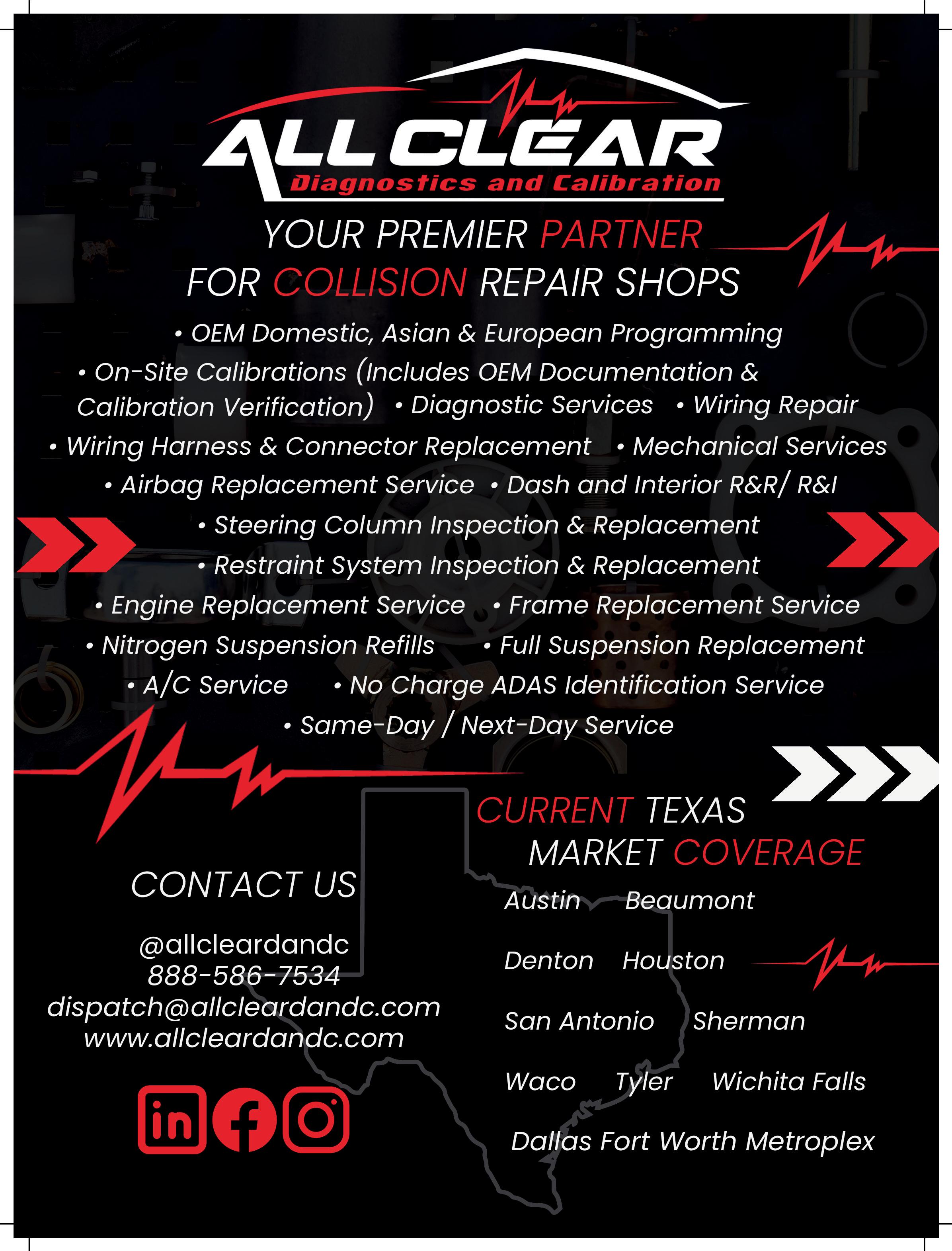
Dear Mr. McDorman,
by Robert L. McDorman
I own and operate a collision facility in East Texas. I agree with last month’s reader that the release of the Texas Department of Insurance’s Appraisal Experience Data Call Report outlines and supports the need for mandatory appraisal rights in Texas. I also was surprised that less than 0.02 percent of payable personal auto claims used the Appraisal Clause. However, what I found equally surprising was that reportedly only 13 appraisals were followed by a lawsuit. Over the years, we have referred many of our clients to Auto Claim Specialists for help when there is a dispute between them and their insurer. Based on comments and feedback from our clients about their experience going through the appraisal process, the reported 13 lawsuits filed after appraisal seems oddly low. It seems I’ve seen at least that many or more just from clients out of my shop. Do you agree? What has been your experience?
Thank you for your comments and questions. As I wrote last month, I commend the Texas Department of Insurance (TDI) for stepping forward, requesting this data on appraisal and releasing it for public view. The 0.02 percent of reported claims that went through appraisal is concerning and shows that there should be greater awareness of the policyholder rights when the proposed settlement offer is low. I feel confident the TDI understands that, without the Right to Appraisal, the number of claims ending in litigation would be much more significant. This data call report sounds the alarm on the systematic under-indemnification scheme I have spoken about for years, underlining the need for mandatory appraisal rights. The TDI website states, “Your policy may include an appraisal process to resolve complaints (emphasis added).” With mandatory appraisal rights in Texas, it would state, “Your policy includes an appraisal process to resolve complaints.”
As for the 13 reported claims during the entire July 2020 to June 2023 time period where a lawsuit followed appraisal, our records show that for the period of July 2020 to June 2021, we referred 42 clients to law firms; from July 2021 to June 2022, we referred 21 clients to law firms; and from July 2022 to June 2023, we referred 89 clients to law firms. When we refer clients to lawyers for help with their claim after their insurance carrier harms them, very few do not follow through with litigation. Thus, our number of likely lawsuits filed during this period after our clients failed to receive fair settlements following the exercise of their appraisal rights is 152 – an order of magnitude greater than the reported number of just 13 from the carriers. Hence, you are absolutely correct in being skeptical of that implausibly small reported number. Additionally,

from August 2023 through December 2024, we have referred another 80 clients to law firms. I would gladly supply our data to the TDI to compare against the data provided by the chosen 12 insurer groups if requested.
Clearly, with the TDI’s Appraisal Experience Data Call Report noting an average appraisal increase of between $2,100 and $5,900, the Texas Watch Impact Of Auto Appraisal Report noting an average increase of $4,078.20 and our average increase of $4,973, the necessity for mandatory appraisal rights in Texas is indisputable. Without mandatory appraisal rights, the litigation numbers would increase through the roof, clogging up our already congested court system. We, as insured citizens of Texas, need our lawmakers to pass the mandatory Right-to-Appraisal bill this upcoming session. Without the passing of this bill, unjust auto claim settlements will not only continue, but likely grow even worse.
In addition to widespread and mostly unchecked underindemnification in total loss claims, the under-indemnification in repair procedure claims in Texas is also rampant. Most of the estimates and supplements we see for repair claims have many overlooked (by design) safety and OEM-required operations needed to restore the vehicle to its pre-loss condition to the best of one's human ability. Limiting or removing the insured’s right to appraise a repair procedure is a serious safety issue. The limiting or eliminating the Right to Appraisal by the insurance carrier in a repair procedure dispute will be the nail in the coffin for safe roadways in Texas.
As I have written many times, we at Auto Claim Specialists understand your concerns about under-indemnification. Until legislators pass laws to make the Right to Appraisal mandatory in Texas for all motor vehicle policies, we have no choice but to continue to advise our clients who have been harmed and cheated by their insurance carriers to fight like the third monkey in line to get onto Noah’s Ark when it has already begun to rain, and we will

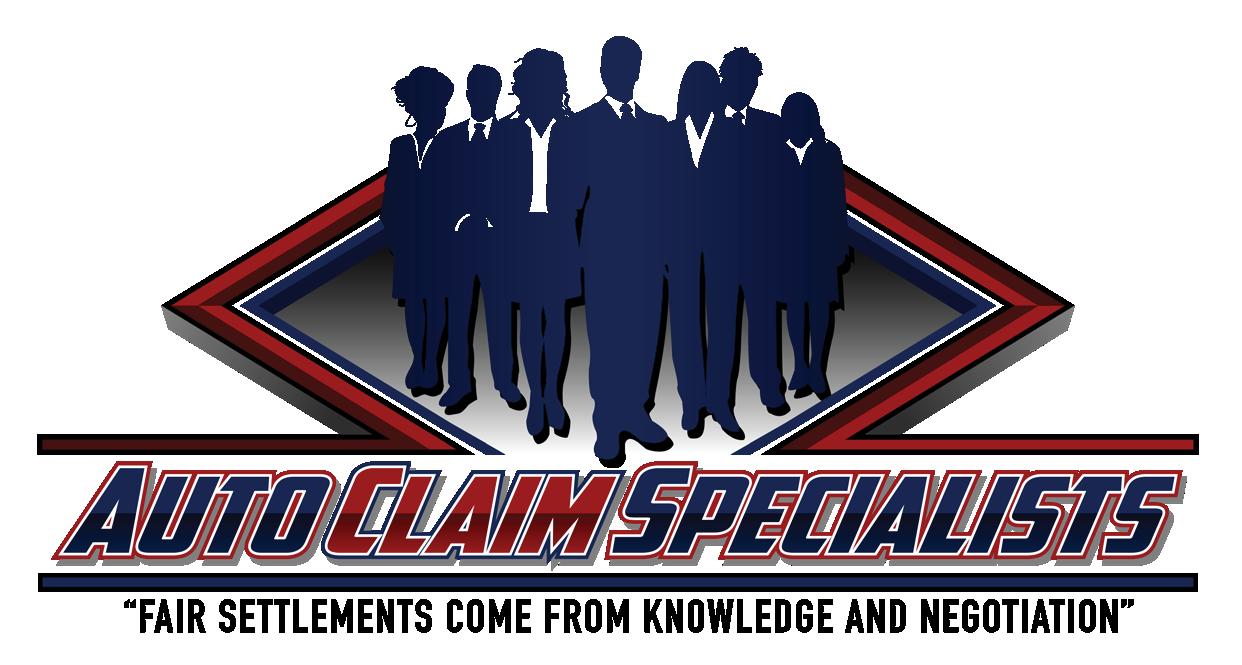






continued from pg. 20
help. In my professional opinion, the more times these systematic under-indemnification schemes are exposed and monetary punishment is levied, the quicker change will come to help us all.
Our position at Auto Claim Specialists is that the Right to Appraisal should be a mandatory contractual right in every policy. For the 89th Texas Legislative panel, we have teamed up with lobbyist Andrew “Drew” Graham to educate lawmakers and help secure mandatory contractual appraisal rights for all insured Texans. We, the insureds, are many, and I am confident that if we join forces and all do what we can, we can be successful in securing our rights and our children’s rights to contest insurance settlement offers that would result in underpayment of losses and/or shoddy and dangerous repairs.
The spirit of the Appraisal Clause is to resolve loss disputes fairly and to do so in a timely and cost-effective manner. Invoking the Appraisal Clause removes inexperienced and biased carrier appraisers and claims handlers from the process, undermining their management’s many tricks to undervalue the loss settlement and under-indemnify the insured. Through the Appraisal Clause, loss disputes can be resolved relatively quickly, economically, equitably and amicably by unbiased, experienced, independent third-party appraisers as opposed to more costly and time-consuming methods

such as mediation, arbitration and litigation.
In today’s world, regarding motor vehicle insurance policies, frequent changes in claim management and claim handling policies and non-standardized GAP Addendums, we have found it is always in the best interest of the insured or claimant to have their proposed insurance settlement reviewed by an expert before accepting. There is never an upfront fee for Auto Claim Specialists to review a motor vehicle claim or proposed settlement and give their professional opinion as to the fairness of the offer.
Please call me should you have any questions relating to the policy or covered loss. We have most insurance policies in our library. Always remember that a safe repair is a quality repair, and quality equates to value. I thank you for your question and look forward to any follow-up questions that may arise.
Sincerely,
Robert L. McDorman TXA

for high production, the Italia comes with the Timeless Series Direct Drive Air Make Up Unit, completely integrated intake, heat, and exhaust system. The Italia includes (2) 10hp VFDs, digital PLC control panel, full lower LED lighting package (every wall), and SmartPad digital control panel with EnergySmart Package, which automatically drops to idle when no spraying is detected.
The exterior of Accudraft’s Dual Skin Finishing Equipment is available in FOUR colors:


continued from pg. 4
and updates on our legislative initiatives. Individual technician memberships cost just $2 per month, and since today’s collision students are tomorrow’s technicians, students have the opportunity to join for that same low monthly rate. Attracting fresh voices and ideas are vital to making sure this association is focusing on the things that matter most to Texas repairers, so please encourage the technicians and collision students you know to join us by taking advantage of these new membership opportunities by going to members.abat.us/application-to-join
I recognize that there’s often a disconnect between owners/ managers and the technicians performing the repairs, and we need to bridge that gap; we need more technicians involved at all levels of the association so they can educate us on what they’re seeing every day. Technicians have a lot to offer, and it’s past time to bring their voices into what we’re doing. I’m looking forward to getting more technicians involved in ABAT to share the wealth of knowledge they can bring to the table, and I’d love to get a technician on our Board of Directors to make sure we’re attuned to the techs’ needs.
Listen – we all know there’s strength in the camaraderie that ABAT offers, and we believe that technicians and future technicians should be part of that; in the long run, we support one another and make each other smarter, stronger and louder. And that volume
comes in particularly handy when it comes to our legislative initiatives because when more voices share our message, more ears hear what we have to say. ABAT wants to hear what technicians think and learn what they know, so please join us and share your experience to help ensure your local association remains the strongest one around!
burl.richards@proton.me










